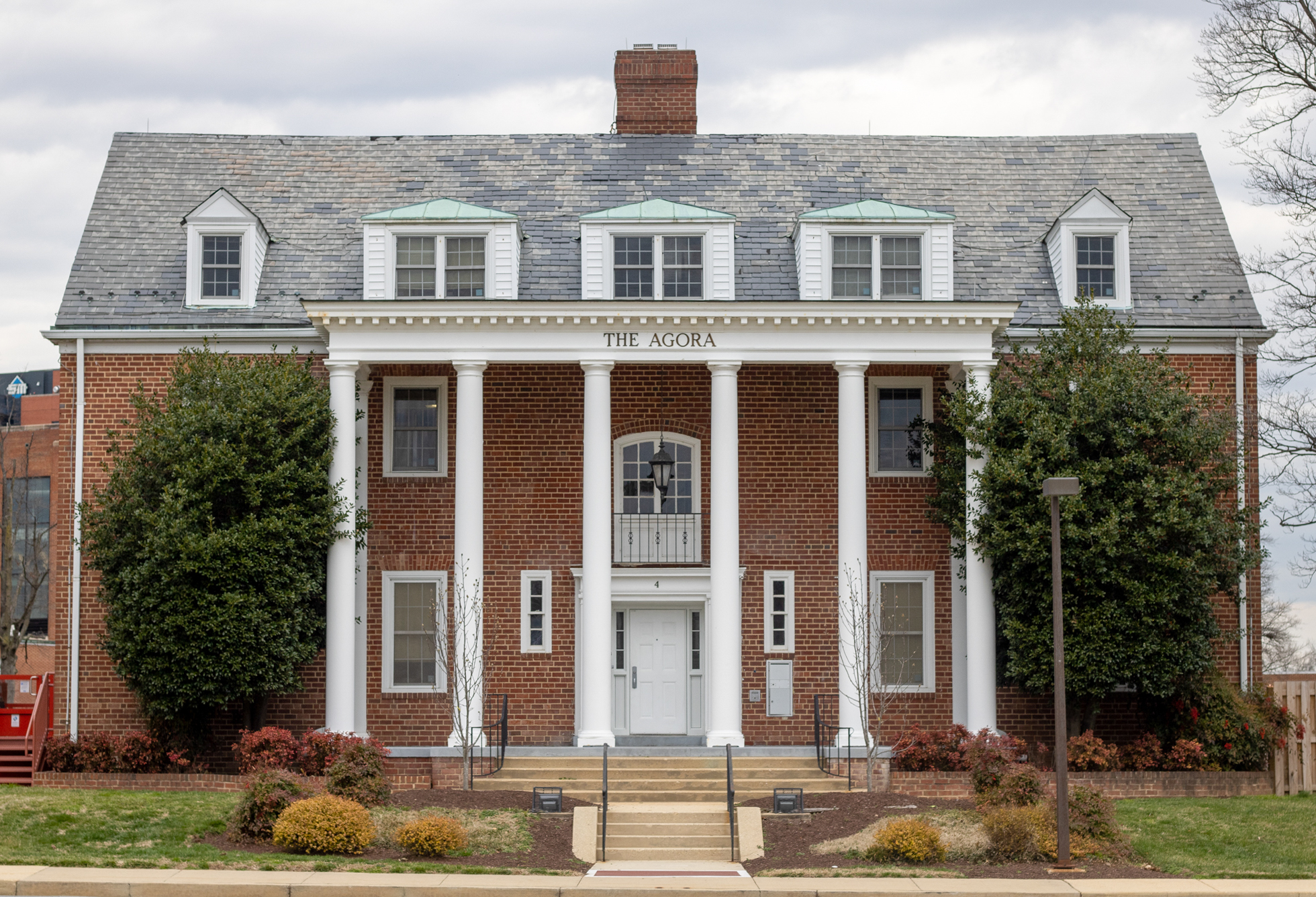University of Maryland community members gathered on Fraternity Row Saturday to dedicate the Agora building, a space for Greek life organizations that serve underrepresented communities.
Greek organizations under the National Pan-Hellenic Council and Multicultural Greek Council at this university will use the building for meetings and events. NPHC currently consists of five historically Black Greek organizations, and the MGC has 13 organizations including The National Association of Latino Fraternal Organizations.
The house is the first one dedicated to multicultural Greek organizations at this university.
Agora is a Greek word meaning gathering place. It was a meeting area in Ancient Greek city-states for people to gather and discuss important community issues, Matt Supple, the director of the fraternity and sorority life department at this university, said.
“It is certainly our hope that the Agora serves this same purpose for our students within the National Pan-Hellenic Council and the multicultural Greek Council,” Supple said.
University President Darryll Pines said the building is a “really positive step” in promoting excellence and creating a multicultural community at this university.
Pines said the university is still trying to remedy the harmful effects of historic discrimination against diverse organizations.
[UMD names public policy building after Thurgood Marshall]
The first floor features a large living room with plaques of NPHC and MGC organizations on the wall.
The Agora dedication came after years of NPHC and MGC organizations trying to get a dedicated space on the campus.
Proposals for a building first started in 1984, according to University of Maryland board of trustees member Nicole Pollard, who is a lifetime member of the Alpha Kappa Alpha sorority and graduated from this university in 1991.
Since then, there have been multiple attempts to get a building for these organizations, including some suggesting the university convert an existing one. Requests for reserved housing declined from 2004 to 2019, Pollard said.
This university created the NPHC garden outside of Nyumburu Cultural Center, dedicating it in the spring of 2003 — but MGC and NPHC organizations still didn’t have reserved housing.
If a meeting room was not available to plan programs or to socialize — which happened often, Pollard said— members of her sorority would gather in dorm rooms or tables in Stamp Student Union.
[Hundreds of UMD students retaliate against demonstrators’ racist, homophobic remarks]
“It is the hope of the university that members of the NPHC and MGC will now have an equally visible representation of their presence on campus,” Pollard said.
MGC President Briana Mercado said she’s already seen the impact the building has had. Now, organizations no longer have to experience frequent room changes or pay for meeting spaces, she said.
“Space can sometimes be a barrier,” Mercado said.
Nia Hawkes, a junior philosophy, politics and economics major and president of this university’s Alpha Kappa Alpha sorority chapter, said the Agora was a step closer to what multicultural Greek organizations at this university are entitled to.
Hawkes said the organization is looking to use the Agora’s expected success to push for campus housing for each of the NPHC and MGC organizations — something multicultural Greek organizations do not have, but fraternities and sororities in the Panhellenic Association and Interfraternity Council do.
“We do utilize this house, and we would utilize any other houses presented to us,” Hawkes said.



